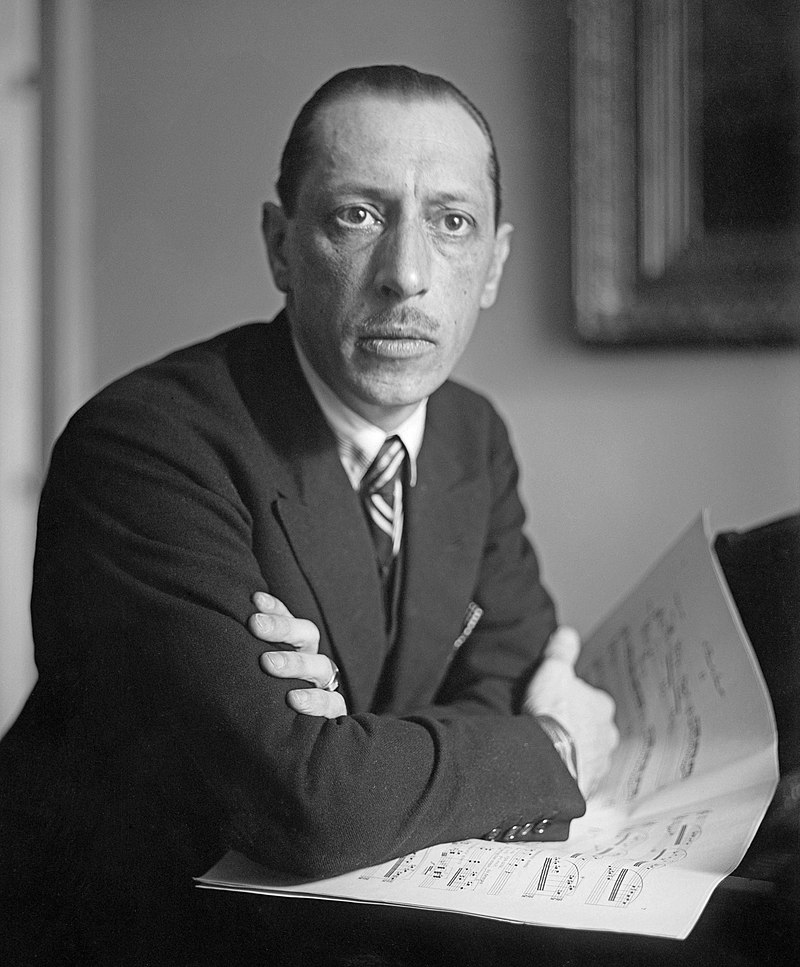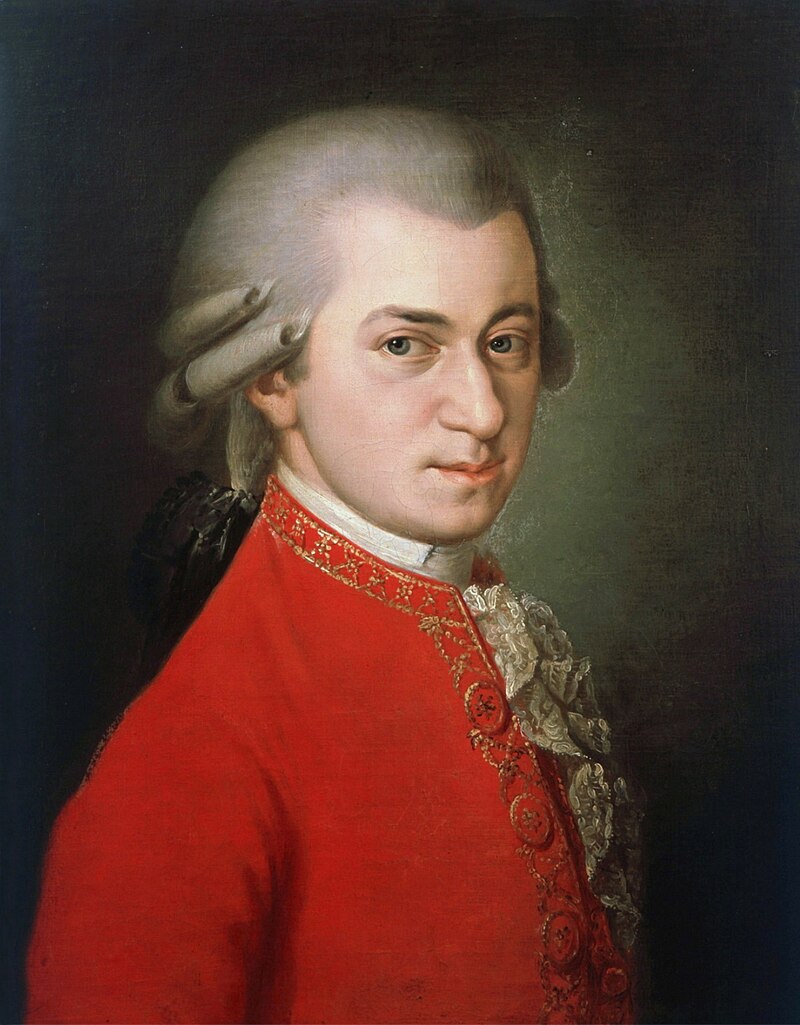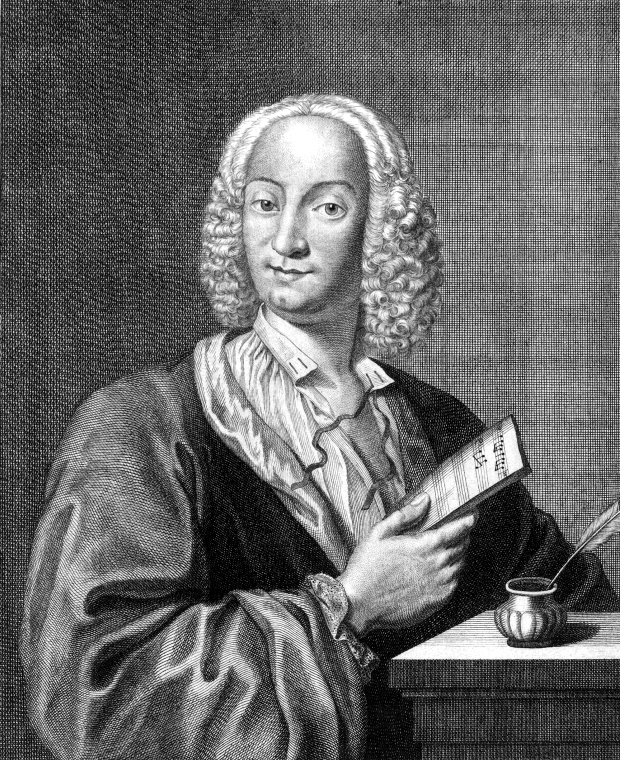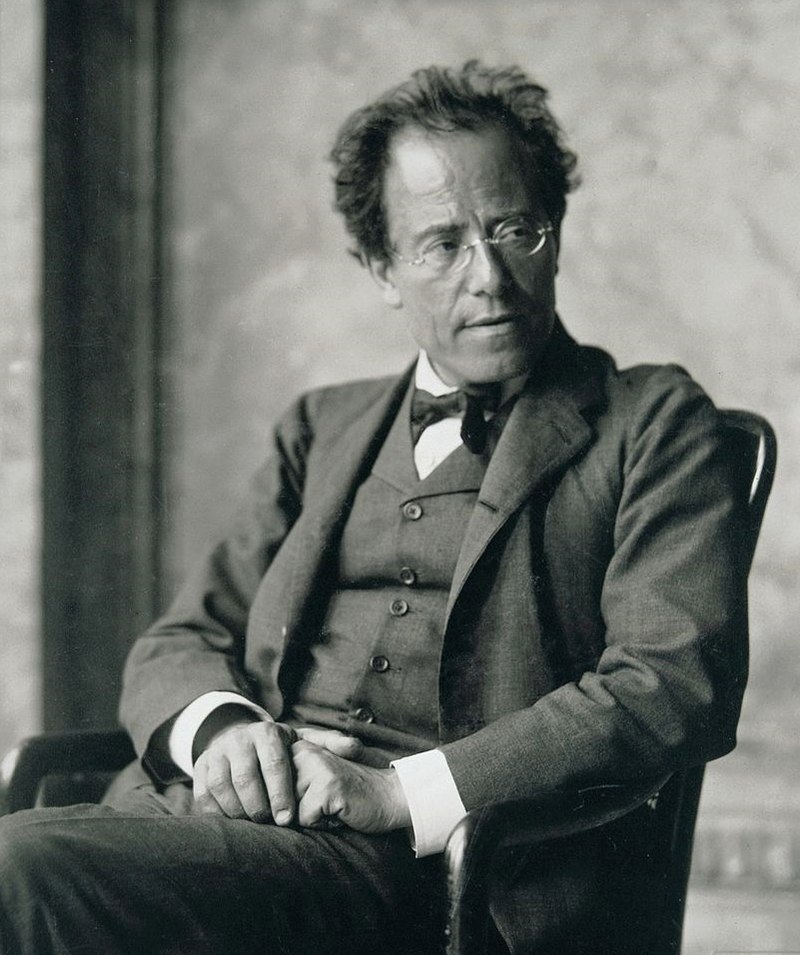 |
| Photo from an actual historic event with Beethoven. Not a film. |
And yeah, I realize that the whole pace of posting updates every 4 days has fallen out of whack, and it's been much longer than that. Oh well.
A few things to note and/or remind you about, carrying over from Part I, in case you've forgotten:
- I know, like, nothing about classical music.
- I don't particularly like or enjoy classical music.
- No, George Gershwin isn't ranked, as the guy who composed Porgy and Bess can't possibly count as a "Classical" musician. Deal with it.
- Based on the two factors above, I did a modest amount of research. But not a ton. Whatever.
- How am I ranking these people? By a number of factors, including how many major / memorable works they have (e.g. their "catalogue"), their continued or enduring fame (despite how they might have been regarded at the time), notable historical and/or cultural legacies, and so on. I'm not writing them all here. This isn't an IRS audit. Leave me alone.
- Based on the above, I assigned a crap load of composers multiple rankings based on those factors, and then averaged those rankings to create a "final" ranking. Those final rankings will appear as an "Average Ranking" that has a number. So, for example, both #9 and #10 (Chopin and Tchaikovsky), on average, ranked at 9.7.
- Full disclosure: I usually avoid looking at other people's rankings if I'm making my own, but this time I did to get some general ideas. In the end, other peoples' rankings did work into the math that I used to rank, though the most important factor I looked at was how often other people included certain composers on their lists. So while one ranking I saw said that György Ligeti was one of the greatest composers of all time, zero other rankings I found listed that dude so high, so I could sort of throw him out and focus my efforts on researching and ranking those who most agreed to be included among the ranks of the greatest.
So who is the best of the best according to me, my arbitrary feelings about something I know very little about, and a bit of math that I mixed in? Here you go:
9. / 10. Frédéric Chopin & Pyotr Ilyich Tchaikovsky (TIE)
 |
| Gangsta pose |
- Nationality: Polish
- Lifetime: 1 March 1810 – 17 October 1849
- Notable Works: "Funeral March" of Piano Sonata No. 2 (1840); Fantaisie-Impromptu (1834, published posthumously in 1855); Nocturnes in E-flat major, Op. 9, No. 2 (1832)
- Average Ranking: 9.7
- Discussion: Part of me thought that I should do an arbitrary tie-breaker to break any ties here, but then again, I'm basing this all on math, and math said that Chopin and Tchaikovsky were tied. Let's start with Chopin. A famed solo piano writer, he was a child prodigy who left his homeland of Poland early to find greatness and fame in France (and to date George Sand, who is a woman, by the way, in case you are confused by that). You've obviously heard of Chopin and know he's one of the greats. Why? Well, now that you're in the Top 10, you're hanging out with the big boys with those famous jams you all know and love. The Funeral March, of course, is super-mega-famous. It's a memorable song, but nobody ever wants it played for them. You know. Because they're dead. If you want something a little more energetic and less depressing, you can instead listen to the famous Fantaisie-Impromptu (though it's only less depressing if you ignore that it was released after he died fairly young at 39). Or maybe take the sleepy/dreamy sounding Nocturne in E Flat Major (Op. 9 No. 2), which, yeah... I'm yawning listening to it. Chopin is a good enough composer to want to name an okay airport and an excellent vodka after. When you think of the great "Romantic" composers, you gotta put Chopin up there, while thinking about how much more he could have done if he lived longer.
.jpg/800px-Portr%C3%A4t_des_Komponisten_Pjotr_I._Tschaikowski_(1840-1893).jpg) |
| Seems like he'd be fun at parties |
- Nationality: Russian
- Lifetime: 7 May 1840 – 6 November 1893
- Notable Works: The Nutcracker (1892); Swan Lake (especially Swan Lake Suite Op. 20, 1876); The Sleeping Beauty (1889).
- Average Ranking: 9.7
- Discussion: Even if you don't know the name and know little about classical music, you know (or know of) Tchaikovsky's work simply by me saying the words "Nutcracker" and "Swan Lake." The most famous Russian composer of all time, Tchaikovsky is the king of classical ballet music. Other might have famous liturgical and choral music. Others might have famous operas. But Tchaikovsky is Mr. Ballet, for sure. He did symphonies and he did operas too, so he had a prolific catalog of work that fans of classical music love. But if you're looking for things that have lasting, memorable pop culture significance to this day, then you are probably gonna go for something like his Dance of the Sugar Plum Fairy. 40% of all revenue from ballet in America comes from annual Christmas productions of The Nutcracker alone. As with many people on this list, though he's obviously famous now, at the time many people were like "just who is this lame dude?" Russians thought he was too western European, and western Europeans thought he was too Russian, leaving him stuck in the middle. He also didn't follow the "rules" set up by the "Viennese Masters," leading to more criticism. Guess he had the last laugh because this dude pretty much owns Christmas now.
8. Igor Stravinsky
 |
| Not John Waters. I promise. |
- Nationality: Russian
- Lifetime: 17 June 1882 – 6 April 1971
- Notable Works: The Firebird (1910), Petrushka (1911); The Rite of Spring (1913); The Rake's Progress (1947)
- Average Ranking: 9.6
- Discussion: My numbers crunching gave Stravinsky a 0.1 point lead over Tchaikovsky and Chopin, so for all purposes he's essentially tied with those two as well. I said that Tchaikovsky was the "most famous" Russian composer of all time, and he is, but Stravinsky narrowly edges him here. Why? Well, Stravinsky is widely considered one of the most important conductors of the 20th century (this dude was alive the same year Dirty Harry came out!) because he had such stylistic diversity and continued to adapt and change his music over different "phases." While many classical musicians did the same through their career, Stravinsky is credited with being a "musical revolutionary who pushed the boundaries of musical design" and who "transformed the way in which subsequent composers thought about rhythmic structure." Pretty bold statements copy/pasted from Wikipedia there! As with his Russian colleague, he is most famous for three ballets (mentioned above) made early in his career between 1910 and 1913. The last of those three, The Rite of Spring, was controversial at the time (nearly causing a riot for its depiction of pagan sacrifice of virgins and shit) and a source of many of the quotes about how he was such a transformative figure. It wouldn't be the last time he was controversial... hell, he eventually moved to America and was arrested in Boston for daring to re-harmonize the National Anthem. Also in America, he's have his most successful opera, The Rake's Progress, before bouncing back and forth between the US and the USSR and even writing an elegy for JFK after his assassination. In the end, Stravinsky's 0.1 point advantage over Tchaikovsky comes from the fact that he was beginning of something new (the Modern period) rather than the end of something old (the Romantic period). His 1971 death means that he's the most recently living person who makes my ranking, and also the only one who lived long enough to see animated dinosaurs fight to his own music.
7. Joseph Haydn
 |
| Or maybe George Washington? |
- Nationality: Austrian
- Lifetime:31 March 1732 – 31 May 1809
- Notable Works: String Quartets (esp. Op. 64 "The Lark," 1790); The Creation (1798); The Seasons (1801); Symphony No. 94 (1792); Symphony No. 103 ("Drumroll", 1795)
- Average Ranking: 9.3
- Discussion: Hayden has been given a lot of titles, including "Father of the Symphony" and "Father of the String Quartet." That is a lot to live up to. Does he live up to those titles? I don't know. Whatever. Let's just keep going and get this ranking over with. Hayden is known for being instrumental (ha, pun?) in the development of music such as the piano trio, concerto, and piano sonata. He rolled with the big time crew in Austria, being a friend and mentor of Mozart, and a tutor of Beethoven. He was one of the most important figures in the development of classical style the 18th century (as you'd think someone would be if they were called the Father of the Symphony). The list of "notable works" above is just a small sampling of the eleventy million iconic works of his. Unlike other starving artists on this list who gained fame after death, Haydn became a big deal in his lifetime and was the equivalent of a rockstar. Nowadays if you talk about famous Viennese composers (sometimes called "The Vienna Four"), Haydn might rank at the bottom of the four (as he does on my ranking). However, during his lifetime he was a BFD.
6. Johannes Brahms
 |
| Unlike his lullaby, this picture will not lull you to sleep |
- Nationality: German
- Lifetime: 7 May 1833 – 3 April 1897
- Notable Works: Hungarian Dance No. 5 (1879); Symphony No. 1 (1876); A German Requiem (1866); Wiegenlied (AKA "Brahms' Lullaby"; "Cradle Song", Op. 49, No. 4, 1868).
- Average Ranking: 8
- Discussion: Brahms is the reason why I had to say Schumann was "often" considered the greatest of the Romantic Era German composers (way back at #17). Before the "Three B's" were Bears, Beets and Battlestar Gallatica, they were Bach, Beethoven and Brahms. Though not Hungarian himself, he did collaborate with Hungarian violinist Ede Reményi, which led to his Hungarian Dance No. 5, a work so iconic that it's basically the Hungarian National anthem (note: it's not). Go ahead and click the link for that one. You'll certainly be like, "Oh yeah. I've heard that before! Quintessential gypsy music!" Going back to the Three B's, Brahms was seen as the spiritual successor to Beethoven, so much so that his own Symphony No. 1 was sometimes called Beethoven's Symphony No. 10. To many, that's meant as a giant complement. To others, it's sort of meant to indicate that he was a bit of a copycat who freely stole from Beethoven's style. He was the OG sampler before hip hop came along, I suppose. But the most famous and well known work of his is simply usually called Brahms' Lullaby, and is instantly recognizable to anyone who has a child or who was once a child themselves (e.g. EVERY ONE). Yes. You know that one. Everyone knows that lullaby. If the Brahms estate got paid for every time someone sung this to a baby, he would be a super duper trillionaire. And don't you think it's a little crazy that the same guy who wrote the most famous lullaby sung to babies is also the same guy who wrote that crazy gypsy dance tune? Because I do. That is range, my people.
5. Franz Schubert
 |
| 5th greatest composer... or dorky accountant? |
- Nationality: Austrian
- Lifetime: 31 January 1797 – 19 November 1828
- Notable Works: The "Trout Quintet" (1819, released posthumously 1829); Symphony No.8 (aka the "Unfinished Symphony," 1822); "Ave Maria" (aka "Ellens dritter Gesang", Op. 52, No. 6, 1825)
- Average Ranking: 7.6
- Discussion: Top 5 time! Will this be controversial? I don't know. According to my math, no. At least not #5 and #4, which I'm sure people who know stuff about classical music will go (yeah, I suppose that's right). The Top 3, on the other hand, might lead to violent unrest, the likes unseen since Stravinsky made a bunch of Parisians watch a pagan Russian sacrifice dance ballet. I briefly mentioned the "Vienna Four" before, and Schubert is one of them (along with Haydn, Mozart, and Beethoven. Despite his short lifetime (he died at 31), Schubert left behind a vast catalog of work, including more than 600 secular vocal works, seven complete symphonies, sacred music, operas, incidental music, and a massive body of piano and chamber music. So there. Schubert. Another guy I know very little about and am unqualified to rank. But here we are. Why am I still writing this? Oh yeah, like our boy Stravinsky, Shubert's Ave Maria also gets a Fantasia appearce. Though, unlike the Stravs, Schubert was long dead. So yeah. Fantasia referenced twice now. Fun. I promise not to mention it again even though a number of the other pieces of music references throughout this ranking are also in it.
4. Richard Wagner
 |
| This man has seen some bar fights |
- Nationality: German
- Lifetime: 22 May 1813 – 13 February 1883
- Notable Works: The Ring Cycle (Der Ring des Nibelungen, 1867), most notably "Ride of the Valkyries", the beginning of act 3 of Die Walküre, the second of the four operas in the Ring Cycle) ; Tristan und Isolde (1865)
- Average Ranking: 5.9167
- Discussion: Wagner is sometimes included with the other "Romantic" composers (especially) the German ones, although he defied that label by revolutionizing his works through a concept known as "Gesamtkunstwerk" ("total work of art"), by which, according to the undeniably and always accurate Wikipedia, "he sought to synthesize the poetic, visual, musical and dramatic arts, with music subsidiary to drama." Dude was a workhorse, and unlike most opera composers, Wagner wrote both the libretto and the music for each of his stage works. He's most famous for his operas, and his four most famous operas are lumped together as "The Ring Cycle," which are all pretty famous, although the aforementioned Ride of the Valkyries is the one that is much more famous than all others. Another reason he's often not included as a traditional "Romatic" composer is that his Tristan und Isolde is often described as marking the beginning of the "Modern" era of music. I know "Modern" and "Classical" seem like antonyms, but you're just going to have to accept that this oxymoron like you accept "Jump Shrimp." Wagner pulls ahead of the others to finish just outside of the top 3. Up to now. There should be not much debate. The top three, however, are going to be a sticky and contentious one.
Okay, time to get down to brass tacks. These three guys are the most famous, and you should absolutely expect these three names to be the top three names. In alphabetical order, they are Johann Sebastian Bach, Ludwig van Beethoven, and Wolfgang Amadeus Mozart. Each has a dozen reasons why they should be ranked #1. But, as with the Highlander, there can be only one. As with all the others, I ranked various factors about their catalogs of work and legacy and tried to create some sort of average ranking of where they fell all things combined. In the end, the spread between the person who ranked at #1 and #3 was a mere HALF OF ONE POINT. So it really, really could have gone any way. What way was it though? Whelp...
3. Johann Sebastian Bach
 |
| A portrait creaming to become a meme. |
- Nationality: German
- Lifetime: 31 March 1685 – 28 July 1750
- Notable Works: Brandenburg Concertos (1721), especially Concerto No. 3 in G major, BWV 1048 ("Allegro"); Orchestral Suite No. 3 in D-Major ("Air," 1730-ish); The Concerto for Two Violins in D minor, BWV 1043 "Vivaci" (written between 1717 and 1723); Toccata and Fugue in D Minor, BWV 565 (unknown date).
- Average Ranking: 2.334
- Discussion: So, Bach is #1 on almost every list I looked at. Remember when I referenced those rankings where composers ranked the greatest composers of all time? Almost universally, Bach came in at #1 on all of them (though, oddly, I could also find one Top 10 that didn't even include Bach in it at all... let's call that data noise to be ignored though). I am sure that, to fellow composers, Bach is the best. There are a lot of reasons why he should come it at #1. The first and foremost should be that there absolutely would be no Beethoven or Mozart without Bach. Since he came before them, he was an inspiration for the compositions to come. Bach is basically the daddy of the German style, and is credited for his mastery of counterpoint, harmonic organization, and adaptation of rhythms, forms, and textures from places like Italy and France. Bach's compositions include hundreds of cantatas, Latin church music, Passions, oratorios, motets, adapted Lutheran hymns, concertos, suites, orchestras, and other chamber music. He wrote extensively for the organ (which he is most famous for), but also wrote a number of things for other keyboard instruments (e.g. harpsichord) and violin. If you click any of the links I linked to above, you will recognize the works. Hell, Toccata and Fugue in D Minor, BWV 565 is basically like "default vampire/horror/villain music" these days. His massive amount of work goes well beyond what I'm talking about here, and could easily get him the #1 spot (as most composers day he deserves). In is lifetime, he was as renowned as other contemporaries (such as one hit wonder Handel), but his reputation soon faded after. However, he definitely and directly inspired and was venerated by others on this list, including Haydn (who owned manuscript copies of Bach's Well-Tempered Clavier, 1722), Mozart (who owned a copy of one of Bach's motets), and Beethoven (who played the entire Well-Tempered Clavier by the age of 11 and described Bach as "the progenitor of harmony"). So why isn't BAch #1 instead of the two guys who rode his nutsack? Well, because I say the two nutsack riders would eventually go on to be even more famous and notable. See now. This is the type of scholarly analysis you can't get by following any ranking made by notable composers themselves.
2. Wolfgang Amadeus Mozart
 |
| As seen on those chocolates |
- Nationality: Austrian
- Lifetime: 27 January 1756 – 5 December 1791
- Notable Works: Requiem in D Minor, K. 626 (1791), especially III. Sequentia f. "Lacrymosa"; Piano Concerto No. 21 in C major, K. 46 (1785), esp. movement 2 "Andante"; Eine kleine Nachtmusik (Serenade No. 13 for strings in G major), K. 525, (1787), esp. movement 1 "Allegro"; The Magic Flute (1791); and many, many, many more. See more of them in the "Discussion" section below.
- Average Ranking: 2.307
- Discussion: One reason why Mozart could have been #1 instead of #2 was that my wife kept telling me again and again that he should be #1. Well, sorry ma coquette, but the math said that he was #2 (but only by 0.473 of a point). The difference between #2 and #1 was likely him, you know, dying at age 35 before he had a chance to have a long career. Imagine how much he could have written if he didn't die young! Well, before he died, he accomplished a lot. Let's start at the end, with his Requiem in D Minor that I mentioned as the most preeminent of his notable works. It was actually unfinished at the time of his death, and Franz Xaver Süssmayr had to finish it off from scraps of Mozart's notes. The Lacrimosa Dies Illa part is all Mozart though, for sure! From that time of his death we work backwards and get all sorts of other memorable classics that remain well-known to this day. They're all up there in that section. Go listen to them. Allegro is so famous that I remember it being used in cartoons all the time, and even ads for cartoons (to me, the lyrics to it still go "LOO-Ney TUNES! You'll find them all on Nick!"). Speaking of Allegros, there is also the Symphony No. 40 in G minor, K. 550: I. Allegro Molto (c. 1788), which is not quite as famous, but is still up there. We could also talk about Piano Sonata No. 11 in A major, K. 331: III. Rondo Alla Turca (1784), sometimes called the "Turkish March" and famous on its own. And how could I leave examples of Mozart without talking about about his The Magic Flute opera, especially its famous Overture (The Magic Flute was basically his final fully completed operatic work, debuting just months before his death). This man had more what in hindsight would be called "number one hits" than the Beatles, and was also presumably bigger than Jesus. Mozart was a child prodigy and gained fame, but it was in his later years (if early 30's can be called "later") in Vienna when he had most of his biggest works and best-known symphonies, concertos, and operas, and most of his unfinished Requiem. In his short life he composed more than 600 works, many of where are "acknowledged as pinnacles of symphonic, concertante, chamber, operatic, and choral music." He is considered by almost everyone to be among the greatest classical composers of all time, and was only getting better towards what would be his unfortunately premature end (his cause of death is still unknown, with many theories).
1. Ludwig van Beethoven
 |
| That hair! Dude should do Pantene Pro V ads. |
- Nationality: German
- Lifetime: Baptised 17 December 1770 – 26 March 1827
- Notable Works: Für Elise (composed 1810, pub 1867); Moonlight Sonata (aka Piano Sonata No. 14 in C♯ minor "Quasi una fantasia", 1801); Symphony No. 5 in C, Op. 67, esp. its famed "Fate Motif" (1808); Symphony No. 9 in D minor, Op. 125 "Choral", especially Movement IV ("Ode to Joy") (1824); Egmont Overture, Op 84. (1810), or the similar Coriolan Overture, Op 64 (1807), and so on.
- Average Ranking: 1.8333
- Discussion: Someone had to be #1, and I came up with Beethoven. Some reasons why? His music is likely the most famous and commonly performed classical still played today. He's like the Shakespeare of music. His music represented a transfer from the "Classical" period to the "Romantic" period, meaning he was a harbinger of change and something new. Unlike the shorter-lived Mozart, his longer lifespan and time composing meant that he put together a ton of work which can now be cateogorized in "Early" (pre-1802), "Middle" or "Heroic" (1802 to 1812), and "Late" (1812 to his death) periods. The latter period in which he was still composing work while increasingly (and famously) suffering from deafness. Each of the periods have thier own, unique characteristics. So let's talk about some of the most famous works. First off, the instantly recognizable Für Elise (For Elise), arguably Beethoven's most renowned and loved work, was never published in his lifetime, and was only discovered 40 years after his death. Nobody knows who the hell Elise was either, or why it inspired Beethoven to drop such a hot piano jam. She's basically the Mona Lisa of Classical Music, with many theories as to who the "real" Elise was that inspired the man. Moonlight Sonata, meanwhile, was popular in Beethoven's day, and is known to be dedicated to his his pupil, Countess Giulietta Guicciardi, with whom he was enchanted and fell in love with (and one of the candidates thought to be the subject of Beethoven's famous "Immortal Beloved" letter, which I previously talked about when Ranking Gary Oldman roles, though the conclusion of the identity of the Beloved from that movie is supported by absolutely no one). The link to the Moonlight Sonata section above in the "Notable Works" section went to the whole thing, however you might want to skip ahead to Movement 3, which is like a super recognizable musical piece within an already super recognizable musical piece. Like Inception. While I'm still talking about movies instead of Beethoven. Beethoven's Fifth, and its Fate Motif (the famous DUN-DUN-DUN-DUNNNN!) can't go without mentioning here. So there. I just did mention it. And speaking of things I have to mention, Beethoven's Ninth Symphony absolutely needs a name drop, and I'm just going to have my link drop directly to 12:52 into this YouTube video to make sure you hear the Classical Music money shot that is so important it's what the bank robbers hear when they break into the vault in Die Hard. Oh. I think I'm talking about movies again instead of Beethoven. At any rate, his catalog of 722 work written over forty-five years (his earliest he wrote when he was 12) gives him a mathematical edge over Mozart (who I honestly thought was going to rank #1) and Bach (who the composers still say is the best, but what do they know?)

.jpg/800px-Bernardo_Strozzi_-_Claudio_Monteverdi_(c.1630).jpg)

_(14780185164).jpg/1280px-The_orchestra_and_its_instruments_(1917)_(14780185164).jpg)















.jpg/800px-DSC09756_-_Bird_Kingdom_(36408930553).jpg)





